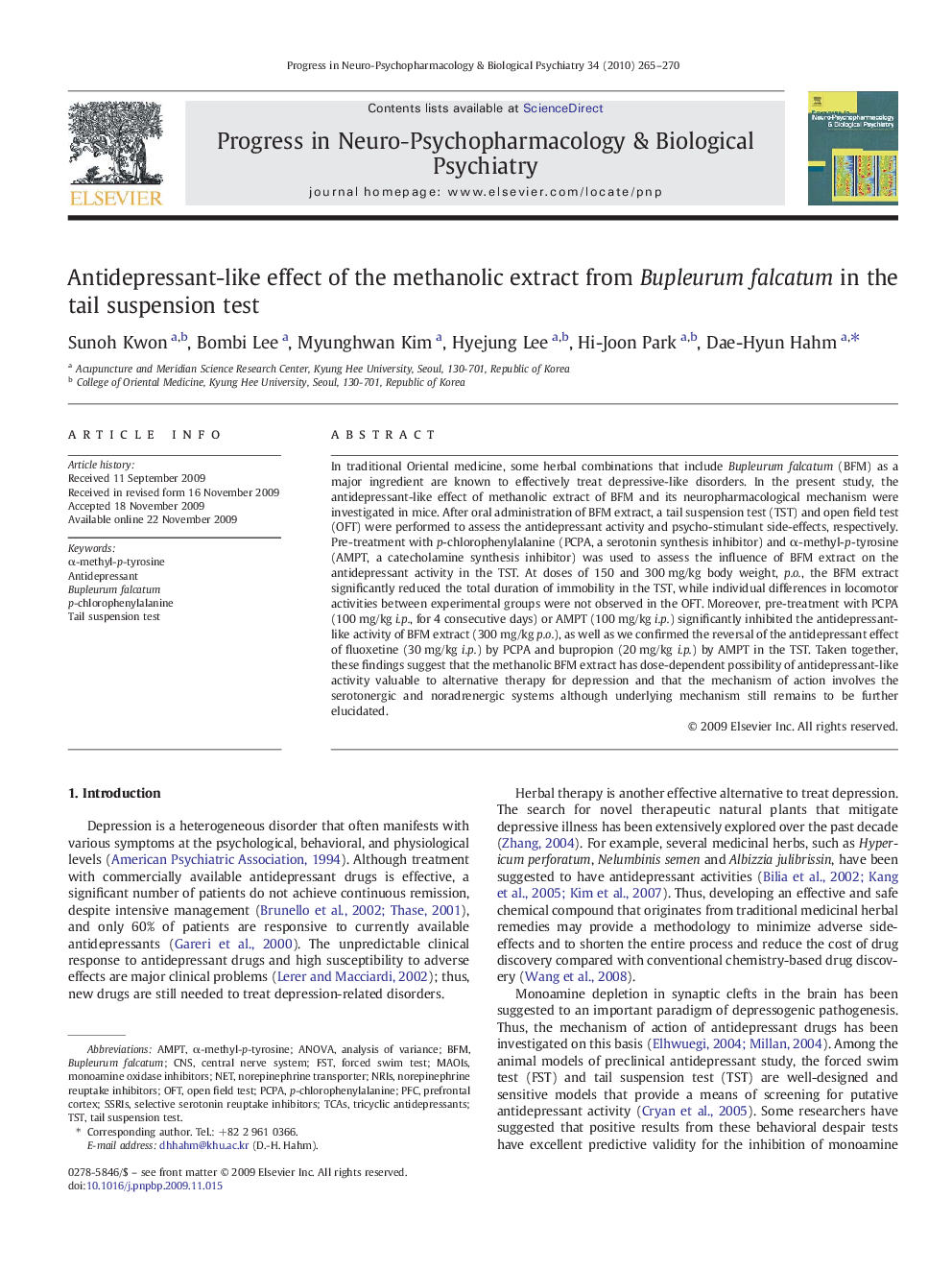| Article ID | Journal | Published Year | Pages | File Type |
|---|---|---|---|---|
| 2565558 | Progress in Neuro-Psychopharmacology and Biological Psychiatry | 2010 | 6 Pages |
In traditional Oriental medicine, some herbal combinations that include Bupleurum falcatum (BFM) as a major ingredient are known to effectively treat depressive-like disorders. In the present study, the antidepressant-like effect of methanolic extract of BFM and its neuropharmacological mechanism were investigated in mice. After oral administration of BFM extract, a tail suspension test (TST) and open field test (OFT) were performed to assess the antidepressant activity and psycho-stimulant side-effects, respectively. Pre-treatment with p-chlorophenylalanine (PCPA, a serotonin synthesis inhibitor) and α-methyl-p-tyrosine (AMPT, a catecholamine synthesis inhibitor) was used to assess the influence of BFM extract on the antidepressant activity in the TST. At doses of 150 and 300 mg/kg body weight, p.o., the BFM extract significantly reduced the total duration of immobility in the TST, while individual differences in locomotor activities between experimental groups were not observed in the OFT. Moreover, pre-treatment with PCPA (100 mg/kg i.p., for 4 consecutive days) or AMPT (100 mg/kg i.p.) significantly inhibited the antidepressant-like activity of BFM extract (300 mg/kg p.o.), as well as we confirmed the reversal of the antidepressant effect of fluoxetine (30 mg/kg i.p.) by PCPA and bupropion (20 mg/kg i.p.) by AMPT in the TST. Taken together, these findings suggest that the methanolic BFM extract has dose-dependent possibility of antidepressant-like activity valuable to alternative therapy for depression and that the mechanism of action involves the serotonergic and noradrenergic systems although underlying mechanism still remains to be further elucidated.
